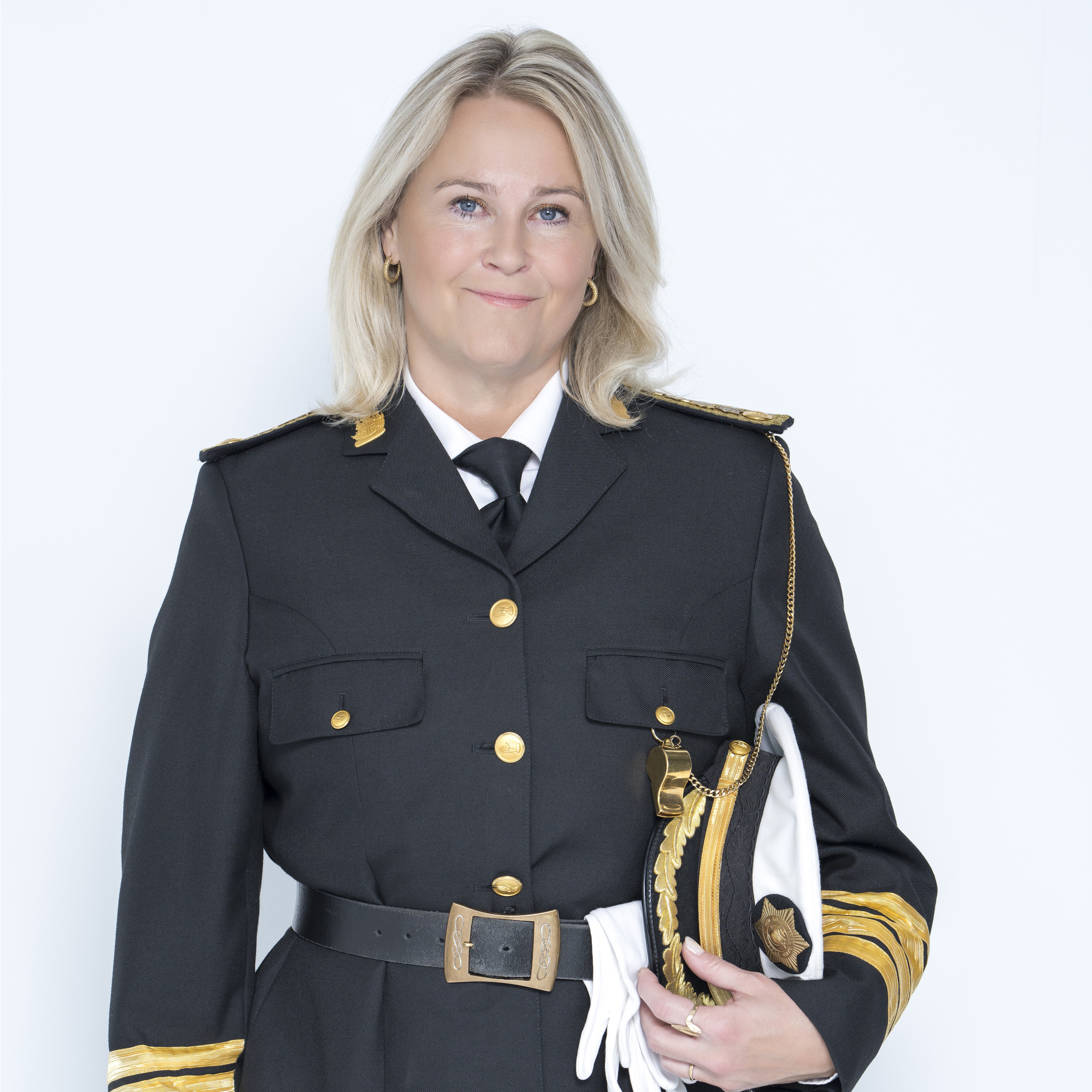Ask a National Commissioner: How does Iceland have such a high representation of women in leadership roles within the national security sector, and why is it important to include women’s voices in peace and security?
Date:


About the author
Sigríður Björk Guðjónsdóttir is the National Commissioner of the Police in Iceland, the first woman to hold the position. She holds a law degree, a Master’s in European law, a Master’s in Public Affairs, and an Advanced Management Program (AMP) from IESE Business School. Since 2002, Sigríður Björk has dedicated her career to law enforcement and civil defense, serving in key leadership roles, including District Commissioner in Ísafjörður, Deputy National Commissioner, and Commissioner of the Suðurnes Police. She made history as the first female Commissioner of the Metropolitan Police, where she served from 2014 to 2020 before assuming her current role. Throughout her career, Sigríður has been a strong advocate for gender equality in policing, actively working to create a culture of inclusivity and mentorship that empowers future generations of female leaders within Iceland’s law enforcement community.
Women bring unique perspectives and life experiences that enhance empathy, communication, and trust within the community, particularly in times of crisis. Research, such as that in the UN Secretary-General's report on Women, Peace, and Security highlights that women’s involvement is critical for creating more accountable and inclusive institutions. Globally, women are underrepresented in law enforcement, yet their leadership is proven to contribute to stronger democracies and sustainable peace.
Iceland stands as a global leader in gender equality, consistently ranking at the top in international indices. In 2024, Iceland was ranked 1st in the Global Gender Gap Index by the World Economic Forum, marking over a decade and a half in this position. The index measures gender parity across Economic Participation and Opportunity, Educational Attainment, Health and Survival, and Political Empowerment, with Iceland being the only country to have closed over 90% of its gender gap.
Iceland is also among the top five countries on the Women, Peace, and Security Index for 2023/2024, reflecting its commitment to inclusive peace and security practices. Furthermore, Iceland achieved a perfect score of 100 in the Women, Business, and the Law 2024 index, well above the OECD high-income regional average, underscoring its dedication to equal rights and opportunities.
In Iceland, we've made significant strides in gender-responsive policies, particularly within the police force. In addition to my role as National Commissioner, women head the International and Border Management Division and the National Central Bureau of INTERPOL. The Police Council, which oversees the country’s nine police districts, has ten members, with women holding four seats. This representation allows us to mirror the diversity of our communities and address issues with a broader understanding, fostering a more inclusive approach to security.
To make a real change towards equality within the police, it is vital that the Commissioner or the Director drives the initiative, speaks openly and about it and follows closely the results. In my experience, outside review and assessment is necessary and data has to be open and accessible. Furthermore, the most important part is to actively change the culture and that has to be done in cooperation with male leaders, that are willing and able to influence throughout the ranks. Equality and diversity are necessary within the police as our clients are diverse and to be able to give a good service and attain trust, we need to understand our clients and that is more likely with equal and diverse police officers and specialists. To work actively to increase equality can be grueling at times but the rewards is a better workplace and better service.
For a cultural change to happen, we need strong women leaders. At the same time, modern policing needs to reflect the communities it serves. We need institutional contract which emphasizes a more performance driven culture and with a different hiring mechanism. For that reason, I have emphasized individual career structuring and coaching.
We implement products, policies, guidance and news that will help forces create positive work environments based on equity and respect, so all officers and staff can fulfil their potential.
Iceland is dedicated partner and supporter of UN Women’s mandate and the second largest donor per capita, championing gender equality and women’s empowerment worldwide. In Europe and Central Asia, Iceland collaborates with UN Women to address gender-based discrimination and violations of women's human rights in conflict and humanitarian situations. It supports UN Women programs in countries experiencing ongoing wars and conflicts, including Ukraine, Afghanistan, Yemen and Syria. It also provides assistance to bring women affected by conflicts into the international peacebuilding and conflict resolution platforms and processes.
This story is published as part of "The Past, Present, and Future of Women, Peace, and Security" campaign, commemorating the 25th anniversary of UNSCR 1325, to celebrate the power of peace. The campaign aims to foster a deeper dialogue on equality, justice and peace, honoring the legacies and amplifying the voices of 25 trailblazing women from across Europe and Central Asia whose significant contributions have transformed their communities, societies, and beyond. The content reflects the personal views and experiences of the author(s) and does not necessarily represent the official position of UN Women, its partners, or the United Nations.